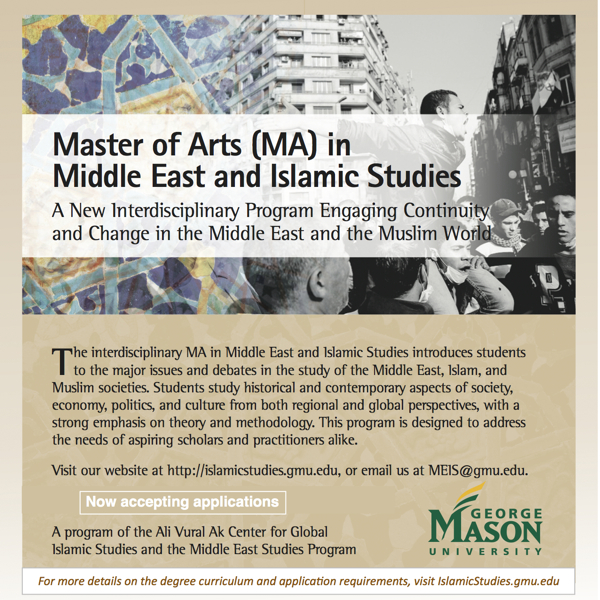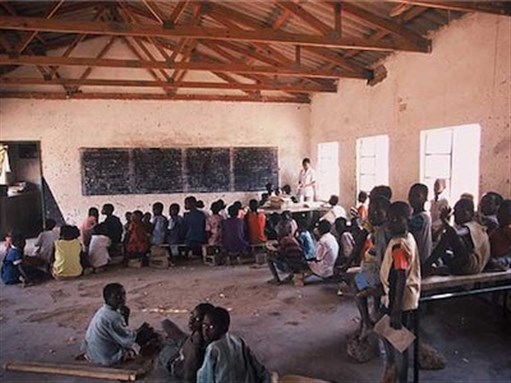The Middle East Studies Program and the Ali Vural Ak Center for Global Islamic Studies at George Mason University announce the deadline for applications for the Fall/Spring 2014-2015 academic year: 15 February 2014.
Click HERE for more information
Click HERE to apply
The aim of this degree program is to reposition the study of the Middle East and Islam within a global context to help students better analyze particular issues in light of current events and shifting historical paradigms. The program’s core classes provide a solid background in both fields of study, however students can choose to focus their coursework on either Middle East Studies or Islamic Studies. A variety of fascinating electives allow students to gain a unique understanding of the complex issues prevalent in both fields by examining historical and contemporary subjects across different disciplines.
With the recent popular uprisings in Arab countries, the transformation of social and political dynamics from North Africa to the Arab East, and our distinguished faculty’s work in new media and political economy, this program is truly “a new M.A. for a new Middle East.” Students will have the chance to study the region from multiple angles and explore emerging trends that shape current discourse in Middle East Studies.
The study of Islam’s diverse communities, rich history, and rapidly changing political realities is also approached from a global perspective in this program to offer students a broader understanding of the Muslim experience outside of any particular regional framework. While topics in Islamic Studies occasionally intersect with those of the Middle East, the degree’s curriculum incorporates subjects well beyond the limits of these borders to reflect the vast intellectual interests that define Islamic Studies today. Our faculty’s expertise in Islamic history, political Islam, and different religious trends will allow students to pursue a more nuanced study of Islam around the world while attaining the necessary skills to compete in today’s job market after graduation.
The application deadline is 15 February 2014 for admission in Fall 2014. For more details on the degree curriculum and application requirements, click here.
[The Arab Studies Institute (ASI), Jadaliyya`s umbrella organization, is now affiliated with George Mason University and with this MA program. Applicants may indicate if they are interested in joining any of ASI`s projects: Arab Studies Journal, Tadween Publishing, FAMA, Quilting Point, Jadaliyya.]

![[Image crop from program poster]](https://kms.jadaliyya.com/Images/357x383xo/MAAd2013-2014jpgsmall.jpg)
















